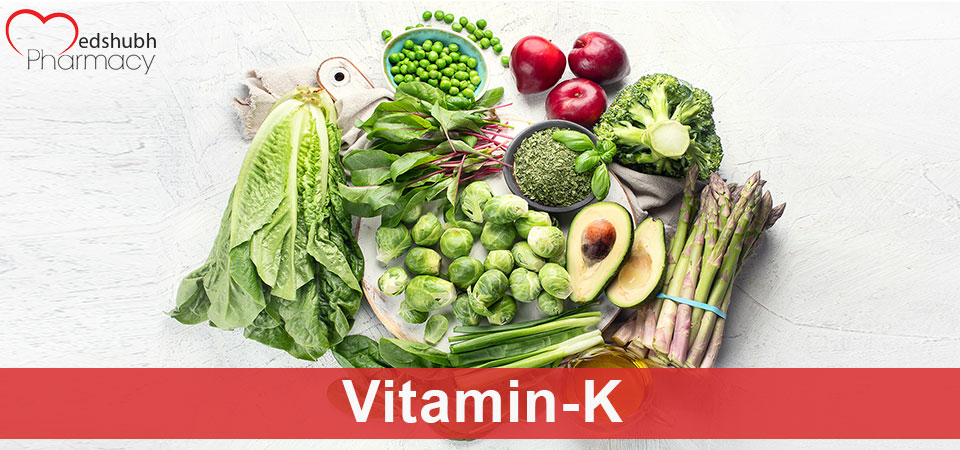Vitamin K is important for blood clotting, bone health and much more. The main symptom of Vitamin K deficiency is excessive bleeding caused by an inability to form blood clots.
Vitamin K comes in two forms:
- Vitamin K1 or phylloquinone, which occurs in leafy green vegetables such as spinach and kale.
- Vitamin K2 or menaquinone, which occurs in animal based foods, including butter and egg yolks, fermented foods such as kefir.
Both Vitamin K1 and K2 produce protein that help the blood clot. Blood clotting and coagulation prevents excessive bleeding internally and externally.
Vitamin K deficiency is much more likely to occur in infants. When it does, it is known as vitamin K deficiency bleeding or VKDB.
Causes and risk factors:
Adults are at an increased risk of vitamin K deficiency and the associated symptoms, if they;
- Take blood thinners or anti-coagulants, which prevent blood clot but inhabit Vitamin K activation.
- Take antibiotics that interfere with Vitamin K production and absorption.
- Do not get enough Vitamin K from the food they eat.
- Take extremely high doses of Vitamin A or E.
There are several reasons why new born babies are prone to Vitamin K deficiency
- Breast milk is low in Vitamin K.
- New born babies liver is unable to use Vitamin K efficiently.
- Vitamin K does not transfer well from the placenta to the baby.
- Gut cannot produce Vitamin K2
Daily requirements of Vitamin K are:
- 120 mcg for males
- 90 mcg for females.
Sources of Vitamin K: Foods that are high in Vitamin K includes
- Green leafy vegetables including Spinach, Kale, Lettuce and broccoli
- Vegetable Oils
- Some fruits such as blueberries and figs
- Meat including liver
- Cheese
- Eggs
- Chickpeas
- Soyabeans
- Green tea
People can also take Vitamin K supplements
Symptoms: There are several symptoms associated with Vitamin K deficiency. The main symptom is excessive bleeding, which may not be immediately evident as it might only occur if the person gets a cut .
Additional signs of additional bleeding can include:
- Bruising easily
- Small blood clots appearing under the nails
- Bleeds in mucous membranes that line areas inside the body
- Stool that is dark black, tar like or contains blood.
Be healthy, be safe. #MedShubh
For a complete health check-up please visit Dr Lal PathLabs center in Noida
#MedShubh #DrLalPathLabs

